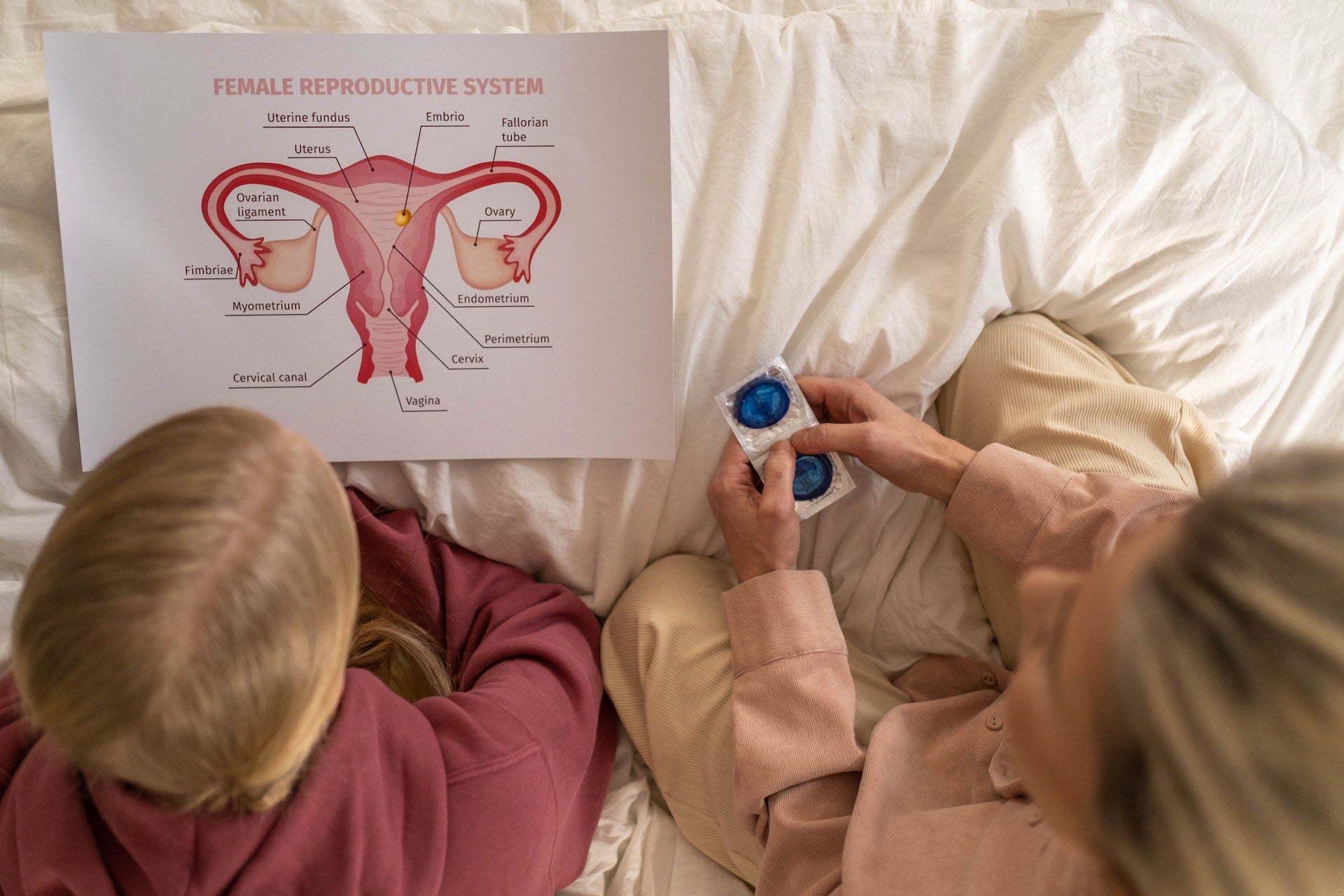This article is for informational purposes only. It is not, nor is it intended to be, a substitute for professional medical advice, diagnosis, or treatment and should never be relied upon for specific medical advice.
Taking care of your ‘Kushae’ is as important as your overall health. The vagina is self-cleaning and can get rid of blood, semen, and discharge by making mucus. When your pH is off-balance, you must intervene and bring it back to normal. But, you will not need special products to take care of down there. Before we discuss her five tips, OB-GYN and co-founder of Kushae, Dr. Barb, says there is often confusion about vaginas and vulvas. She explains that the difference between the two is essential to understand because it will improve how you care for this delicate organ.
The Difference
Vulva - consists of the external (outer) sex organs- anything you can see. These include the mons pubis, clitoris (pleasure center), labia majora (outer fold), labia minora (inner fold), vaginal opening, hymen, urinary opening, urethra, Skene’s, and Bartholin’s glands. The main functions of the vulva are to provide protection for the internal sex organs (labia), stimulation for sex through the clitoris, and lubrication through the Bartholin’s glands.
Vagina - connect the vulva to the cervix and through the uterus. It is the canal for childbirth (for those who have given birth vaginally) and monthly menstruation.

1. Sexually Transmitted Diseases Test
Whether in a monogamous relationship or not, Dr. Barb explains that you should get tested if you are sexually active. If your doctor recommends that you get tested and are a risk factor, take the recommendation and get it done. Sexually transmitted diseases are not always the result of a sexual partner cheating; they can also result from a late detection that was never tested before the start of a new sexual relationship. Dr. Barb says early detection is crucial because you can get a treatment plan and resolve the health issue faster and efficiently with your healthcare provider. Untreated STIs, like chlamydia and gonorrhea, can cause severe health complications such as PID (pelvic inflammatory disease).
2. Constant Vaginal Itching and Burning
If you are experiencing vaginal itching and burning, often, these are signs of yeast infections. But suppose you are not feeling relief in a few days with self-treatment or your symptoms last several weeks. In that case, you may have a sexually transmitted infection or bacterial vaginosis. Dr. Barb explains that itching and burning can be signs of other illnesses, and how they are treated will be different. She recommends visiting your healthcare provider to determine the cause or root issue. Do not deal with your health concerns alone and prolong getting treatment. Remember, early detection is the best course of action to start a treatment plan.
3. Appropriate Clothing
Your ‘Kushae’ needs to breathe easily and stay dry. Moisture can lead to many vaginal issues, such as bacterial vaginosis or yeast infections. Wearing the right outfits will help ensure that Down There is an environment to thrive. Dr. Barb recommends
- Wearing cotton underwear - this material is the most breathable, so opt out of silk or
- polyester.
- Avoiding tight clothing like underwear, jeans, or tights because they will retain moisture
- Avoiding staying in damp clothing all day, like swimsuits
- Changing clothes & Showering after workouts
- Not wearing underwear to bed to reduce sweat being trapped around the vulva
Confused about which Kushae product to try first? Take the Kushae quiz to find a personalized product selection.
4. Vaginal Discharge Changes
Vaginal discharge is normal and changes based on the menstrual cycle. Some of these changes in vaginal discharge can indicate that something alarming is happening Down There. Before ovulation, Dr. Barb explains that your body will make more vaginal discharge that may look yellow, white, cloudy, and feels sticky. During ovulation, the discharge will look clear and feels slippery; this happens for sperm to reach a mature egg for reproduction.
Dr. Barb says if you take birth control with estrogen, you will likely not see many changes in your vaginal discharge throughout your monthly menstrual cycle because estrogen suppresses ovulation. She adds that progesterone only and non-hormonal birth control will not affect your vaginal discharge. You will see the discharge changes throughout the month because you will still ovulate.
Dr. Barb explains that if your vaginal discharge looks like cottage cheese, you may have a yeast infection that needs treatment. Color changes such as gray, yellow, white, or green discharge can be indications of bacterial vaginosis (BV - where the harmful vaginal bacteria outnumber the good bacteria leading to this infection) or trichomoniasis, a sexually transmitted disease with a putrid smelling discharge. If your discharge looks off-putting to you and the smell is foul, visit your healthcare provider as soon as possible to determine the cause and start a treatment plan.
5. General Vaginal Hygiene Tips
Dr. Barb understands that many people with vaginas do not have access to medical care and may forgo going to a gynecologist for many reasons, including finances. Her final tips are a bunch of general vaginal hygiene tips she would recommend to anyone who wants to improve their vaginal hygiene routines.
- Wash your vulva with a pH balanced, gentle intimate foaming wash daily.
- Do not wear scented liners, pads, or tampons.
- Wear more than one tampon or pad the whole day. Change them at least 4 to 5 times a day.
- If needed, keep an alarm to change your pads or tampons regularly.
- Do not wear tampons when your period is light.
- Eat probiotics foods for healthy pH balance.
- Drink lots of water and stay hydrated throughout the day to reduce bacterial overgrowth.
- Use Boric Acid suppositories if your pH balance feels off or if you have Bacterial Vaginosis.
- Practice safe sex - by using protection, getting tested for STIs, having vaginal sex before anal, and choosing the right brand of condoms and contraceptive methods that work best for you.


















